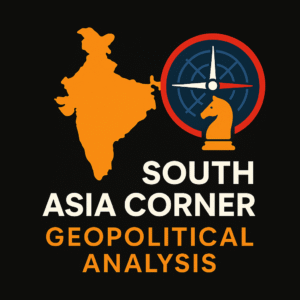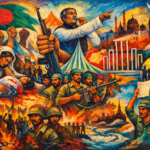
Bangladesh, the nation born out of fire and sacrifice in 1971, is descending into a vortex of lawlessness and mobocracy that mocks the very ideals it once stood for. A country that bled for justice and human dignity now stands disgraced — not at the hands of a foreign invader, but by its own people, its own apathy, and its own leaders.
Mob violence has become routine, almost expected. According to The Daily Star, Bangladesh has witnessed a disturbing surge in “mob justice” incidents — lynchings, public beatings, and extrajudicial punishment — often carried out in full view of law enforcement. These are not isolated aberrations; they are symptoms of a society teetering on collapse, governed not by law, but by fury. In 2024 alone, dozens of people were beaten to death across the country on mere suspicion, without trial, without recourse, and without dignity. And in many cases, the police stood by, powerless, indifferent, or complicit (source).
But perhaps the most tragic and shameful moment came when revered Freedom Fighters, the best sons of Bangladesh, were publicly humiliated and beaten in police custody by an out-of-control mob. These are men who once risked their lives for the birth of this nation. Today, under the watch of a Nobel Laureate Chief Advisor of the Interim Government someone who was globally celebrated for championing human rights — these war heroes were subjected to unspeakable indignity. Where is the Nobel commitment to human dignity? Where is the state’s soul?
The Nobel Prize, in this case, has become a cruel irony.
The situation is worse than just unchecked violence — it is the systematic erosion of the social fabric. A Diplomat report asks the question: why is mob violence so common in Bangladesh? The answer lies in years of declining faith in institutions, a toxic blend of political polarisation, and a culture of impunity where perpetrators of mob violence are rarely brought to justice (source). In the absence of a fair and functioning judiciary, the public has turned into judge, jury, and executioner—a phenomenon both dangerous and damning.
And yet, amid this decay, the victims aren’t just individuals—they are also symbols. Monuments to 1971, murals of secular figures, statues of Bangabandhu, even Hindu mandirs and minority shrines are being defaced, destroyed, or desecrated by mobs intoxicated with a radicalised interpretation of Islam. Bangladesh, which was once envisioned as a secular, inclusive democracy, is now being overrun by theocratic vigilantes — emboldened by silence from the top and the complicity of those in power.
The tragedy of minorities, especially Hindus, continues unabated. In one horrific incident reported by The Hindu, the rape of a woman from a minority community sparked outrage—not because justice was swift, but because even her identity was revealed, further traumatising the victim. Instead of justice, there was spectacle. Instead of protection, there was betrayal (source).
The very soul of Bangladesh is under siege—and this siege is internal.
Where are the voices of reason? Where are the moral anchors? Where is the leadership that once promised to uphold the spirit of ’71—the spirit of equality, justice, and human dignity?
Bangladesh today resembles a burning archive. The ideals of its liberation are being torched by petrol bombs of hatred, the constitution is bruised under the boots of radicalism, and the flag is waved not as a symbol of pride but as a shroud over corpses of justice and sanity.
To disgrace a freedom fighter is to disgrace the nation.
And yet it happens—under the shadow of power, under the banners of false piety, under the gaze of a Nobel winner whose silence is deafening.
If this is progress, then we must ask, progress toward what?
Bangladesh is not just decaying; it is being eaten alive by a mob culture fueled by political apathy, institutional decay, and a state-sponsored ignorance of human rights. The ghosts of 1971 must be weeping—for this is not the Bangladesh they died for.
It is time for the nation to wake up — before it becomes unrecognisable.






